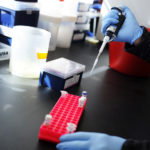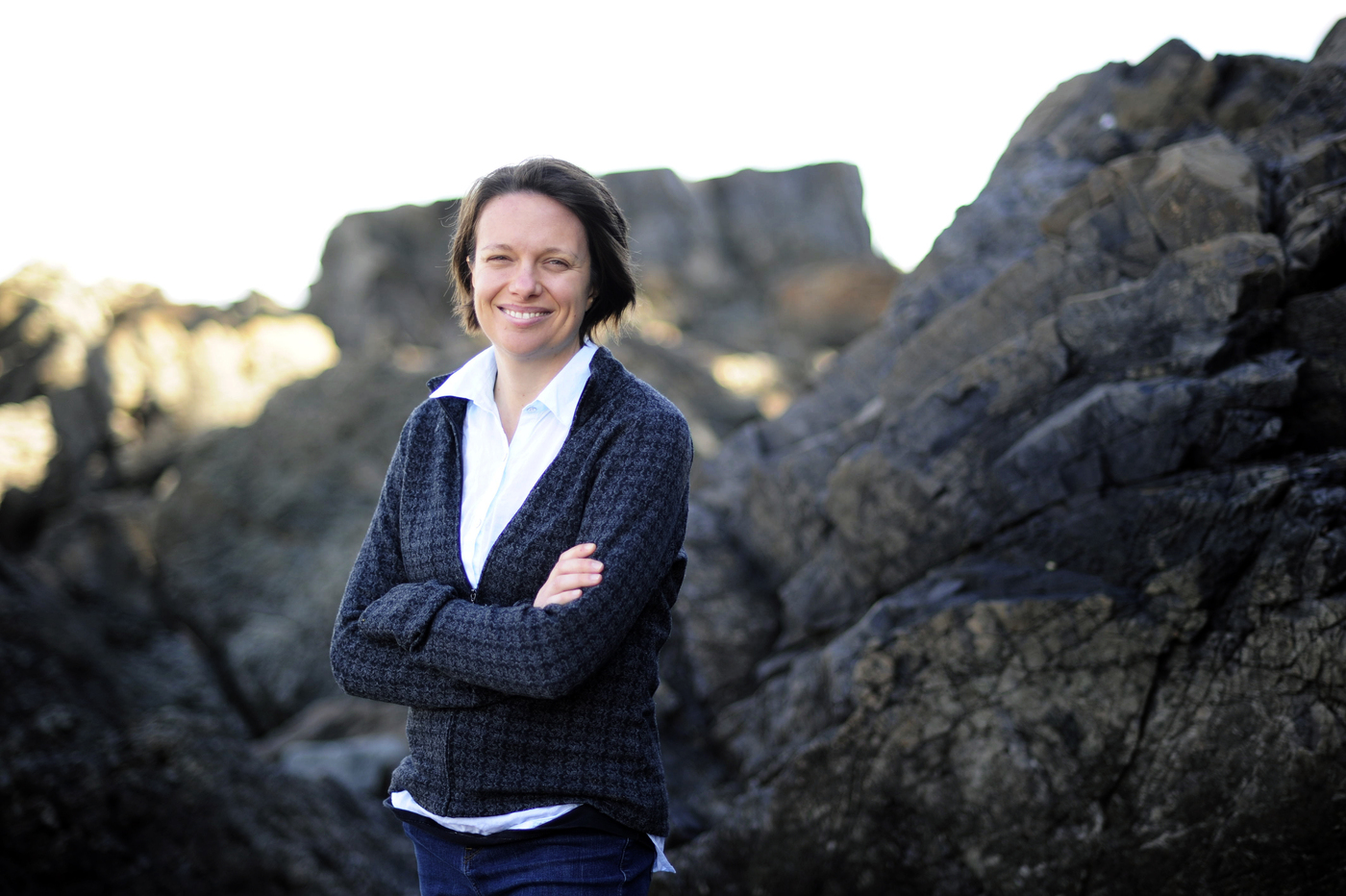by Thea Singer
Kathleen Lotterhos is a conservationist with the academic arsenal to make a difference. The new assistant professor in the College of Science brings together molecular biology, genetics, and bioinformatics to understand how populations—on land and at sea—will respond both ecologically and evolutionarily to our ever-changing environment.
“I’m particularly interested in questions about connectivity in marine populations—how species move from one location to another,” says Lotterhos, who grew up on a lake in upstate New York, and has “always loved the water.” “Theory shows that reserves that are connected are more effective in conserving populations than ones that aren’t.”
How species from pine trees to Pacific rockfish adapt to climate change affects how we live—the air we breathe, the food we eat—as well, says Lotterhos.

To track how Pacific rockfish travel, she analyzes genetic patterns in individual fish from different locations using a tiny “fin clip” as a tissue sample. Because DNA is inherited, if a genetic pattern in a fish from, say, Canadian waters matches that of a fish caught off the shores of Oregon, she knows that the populations are “connected”—that those fish, or their offspring, have moved from one location to the other.
Such findings raise questions about sustainability, says Lotterhos. For example: How does the ocean environment in different locations contribute to the success of populations? Can we use genetics to assist in that success, and if so, in what way?
“If we want to understand how populations will respond to environmental change in the future, we have to understand how they’ve adapted in the past,” says Lotterhos. “We have to understand the genetic basis of that adaptation and ask: Intrinsically, does that population have the ability to adapt on its own?”
At Northeastern, Lotterhos will tackle those questions in both the field and her lab at the Marine Science Center.
“I feel so at home here,” she says. “The location of the MSC is beautiful and the faculty are the best in their fields. I have overlapping interests with everyone here, but also my own unique perspective. I see our collaborations leading to major advances in all of our disciplines.”
Originally published in news@Northeastern on October 5, 2015.

